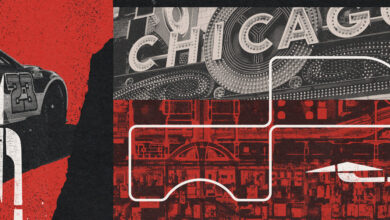‘Patriots’ Review: What Happened to the Man Who Made Putin?

“In the West you have no idea.”
So begins Peter Morgan’s play “Patriots,” which opened on Monday at the Ethel Barrymore Theater. The line is spoken by the Russian oligarch Boris Berezovsky, referring to the foods, sights and music that supposedly feed the great Russian soul. These are represented, in Rupert Goold’s entertaining if overcaffeinated production, by boozy singing and balalaikas, sometimes even fur hats.
But “Patriots” also sets out to demonstrate how little the West knows about the real world of realpolitik: the grudges, enmities and insulted dignities that in the post-Soviet 1990s, with casino capitalism rampant in Russia, created Vladimir Putin.
If you could ask Berezovsky, though, he’d tell you it was he who created Putin, a tenth-rate provincial nobody he eased into power, first as prime minister and later as president. Berezovsky (Michael Stuhlbarg) calls himself Putin’s “krysha” — literally his roof, figuratively his protector or, as he explains, the “bully on your side.”
Spoken in the weirdly accented English of this production, which originated in London and has been remounted for Broadway with key cast changes and Netflix as a producer, “krysha” sounds confusingly like “creature.” It turns out to be a useful confusion. “Patriots” is a wild story of makers switching places with the made, of Pinocchios devouring Geppettos.
Putin (Will Keen) was and is both: a liar and a manipulator. Berezovsky (Michael Stuhlbarg) was at least the latter — but, well, in the West we have no idea. We meet him in “Patriots” as a 9-year-old math prodigy, an obnoxious “golden child” fixated on winning a Nobel Prize. (That there is no Nobel in mathematics is one of Morgan’s many shortcuts.) The boy’s interests, at least as selected for ironic reference later, are in the predictability of decision making, under rational and even irrational circumstances.





